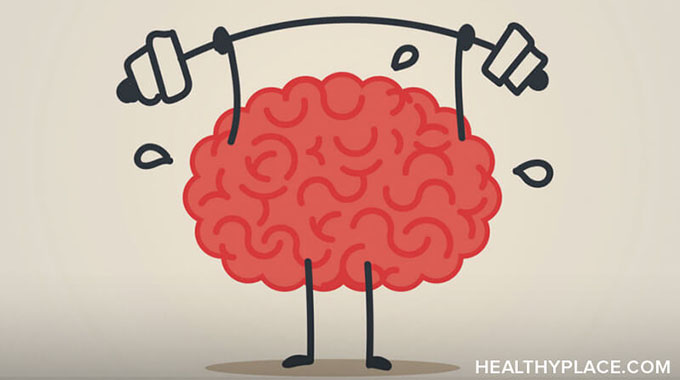Gratitude and mental well-being

Dr Chido Rwafa-Madzvamutse Mental Health
As discussed in previous articles, mental health is defined as a state of well-being in which an individual realises his or her own potential, can cope with the normal stresses of life, can work productively and fruitfully, and is able to make a meaningful contribution to their community. Gratitude or acknowledging the good aspects of life and being thankful can have a powerful impact on mental health and well-being. During the holiday season as people take time to rest and reflect on their lives; challenges this year, relationships, they can learn to become more appreciative of the good aspects of lives and this can greatly help in the journey towards mental wellness.
What is gratitude and how does it affect mental health?
Gratitude is an attitude of thankfulness, of being appreciative of positive aspects of life despite the challenges one may be experiencing. Gratitude is being able to say thank you, to be able to accept and appreciate help we have been given, to “count our blessings”, to be able to see and acknowledge the gift of life itself. Studies have shown that being grateful can have a powerful impact on physical and mental health as well as relationships and social well-being.
- Physical benefits of gratitude: Being grateful helps us to regulate our stress hormones and this results in better heart health and also regulates our blood pressure. Gratitude also helps regulate our sleep pattern, helping us get deeper and more restorative sleep. Being thankful also helps reduce pain in those experiencing painful health conditions and can also improve our immune system functioning.
- Mental benefits of gratitude: Gratitude has been described as one of the healthiest human emotions. Being able to not just reflect on negative life experiences, but to also acknowledge the positive aspects of life helps regulate brain chemicals and can improve our mental well-being. Gratitude reduces tendencies to think negatively. Being grateful reduces stress hormone levels and this reduces feeling of anxiety. Gratitude helps regulate dopamine levels and this helps to reduce feelings of depression and helps make us happier. Gratitude can improve our self-esteem and can make us more hopeful, optimistic and courageous. Hope and optimism are crucial for mental well-being.
Social benefits of gratitude
Gratitude strengthens relationships and allows us to access better social support from family and friends, particularly in times of stress. Our ability to thank others and express appreciation to others benefits our social connections. Gratitude also helps us to be more patient, less selfish, more empathetic and less materialistic. This all helps improve our relationships and social support networks.
Can mental health problems affect our ability to be grateful?
Common mental health problems such as excessive stress, anxiety, depression, psychological trauma and substance misuse can make it difficult to see the positive and the good aspects of life. Common mental health problems can make us irritable, less tolerant of distress and less able to cope with life’s challenges.
- Excessive stress
When we experience excessive stress we may experience headaches, neck and shoulder muscle tightness, fatigue, abdominal pain/discomfort, sleep problems, irritability, restlessness or agitation, we may feel overwhelmed and may struggle to concentrate and complete tasks. This can greatly affect our ability to be grateful.
- Anxiety: Panic attacks (that cause intense fear with severe physical fear reactions where there is no actual danger or apparent cause for the distress), Generalised Anxiety Disorder (that cause constant fear and worry about everyday life that is difficult to control, being worried and excessively fearful about everyday things and worry which is not in keeping with the actual threat), Phobias (that cause excessive, irrational sometimes crippling fears) can all result in a reduced a Generalised Anxiety Disorder (that cause constant fear and worry about everyday life that is difficult to control, being worried and excessively fearful about everyday things and worry which is not in keeping with the actual threat), Phobias (that cause excessive, irrational sometimes crippling fears) can all result in a reduced ability to be thankful and grateful.
- Depression: Many of the symptoms of depression such as a sad or low mood, fatigue, loss of motivation, poor sleep, changes in appetite, poor concentration, low self esteem, feelings of helplessness, feelings of hopelessness and at its worst thoughts of death and suicide can make it very difficult to remain grateful, hopeful and optimistic in life.
- Psychological trauma: Exposure to real or perceived threat to life such as sexual assault, physical assault, being attacked by burglars, road traffic accidents, natural disasters and war can result in anxiety, hypervigilance, irritability and anger, reckless or self-destructive behaviour, reliving the traumatic experience and avoiding reminders of the traumatic event. Trauma makes life difficult, and this also affects our ability to be grateful and thankful.
How can I become more grateful?
We can train ourselves to be more grateful and appreciative. Like any good habit, this takes time and consistency. Studies have shown that the following exercises can help improve our ability to be grateful:
- Keeping a gratitude journal: Reflecting on our life experiences regularly and being deliberate to record the positive aspects of life to remind ourselves of the good that has happened, in spite of the challenges we face can help us be more grateful. Another approach to this can be a gratitude jar where we place a written note each time something good happens and reading these during a time of reflection such as at the end of a year can also help us be more deliberate about being grateful. As we reflect on what we are grateful for, we can also ask ourselves what we have learnt recently and be grateful for that too.
- Sharing gratitude with others: Being able to say thank you and carrying out meaningful acts to express appreciation helps us to be more grateful of others and to build stronger, positive relationships with others. Writing a letter or a message to express our gratitude to someone who has helped us can go a long way to strengthening our ability to be thankful but to also encourage others and strengthen our social support systems.
As we continue to reflect on this past year and prepare for the year ahead, it is important that we train ourselves to become more grateful as part of our journey to mental wellness.
If you think you or someone that you know may be experiencing a mental health problem that may be affecting your ability to be more grateful in life, please contact your nearest health provider and get help. Association of Healthcare Funders of Zimbabwe (AHFoZ) article written by Dr Chido Rwafa Madzvamutse, Consultant Psychiatrist.Feedback +263714987729)
(www.ahfoz.org ; [email protected])









Comments